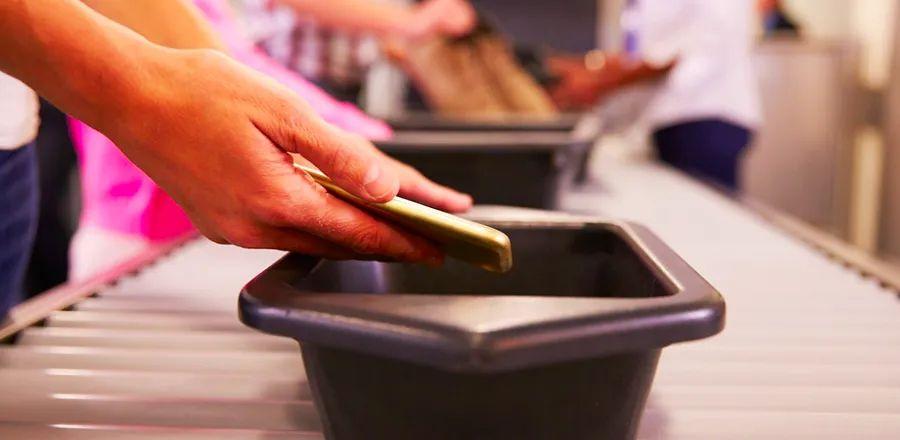Decline Facial Recognition, Request a Private Screening—Essential Airport Rights for Every Traveler

Passengers returning to air travel after the pandemic may find themselves navigating new procedures and technologies at the airport, including biometrics and updated screening techniques.
Many of these changes, which were underway before the pandemic, have since intensified and can feel overwhelming. Understanding what is optional versus required can help ease the transition.
Here’s a guide to the essential rights travelers should be aware of at various points during their airport experience.
Choosing to opt out of biometric processes
The adoption of biometric technologies, including facial recognition and fingerprinting, is increasing in air travel and is here to stay. Airlines, U.S. Customs and Border Protection (CBP), and the Transportation Security Administration (TSA) began integrating facial recognition technology before the pandemic, and its use has expanded as a touchless, tech-driven solution for identity verification.
Facial recognition systems are being implemented in airports nationwide and utilized by many airlines during boarding to streamline staffing and enhance the speed and efficiency of certain airport operations. While some travelers appreciate this method for expediting their journey, others express concerns about privacy and accuracy.
There may come a point when avoiding facial scans becomes more challenging, but currently, airlines, CBP, and TSA maintain that participation is voluntary and passengers have the option to opt out.
Request private screening
TSA personnel are tasked with ensuring that no passenger carries illegal weapons, contraband, or explosives. This sometimes requires physical contact to verify that travelers are not carrying prohibited items. If a pat-down is necessary, passengers have the right to ask for their screening to take place in a private area.
Exemptions for Young Children and Seniors
A few years ago, TSA relaxed its screening protocols for children under 12 and adults over 75, aiming to prioritize higher-risk groups. “If you look at everyone, then you effectively look at no one,” noted Jeffrey Price, an airport and aviation security specialist from Metropolitan State University of Denver.
While the guidelines are somewhat ambiguous, they generally allow older adults and young children to keep their shoes and light jackets on while going through body scanners.
“Will this create vulnerabilities in the system?” Price questioned. “Absolutely. But it ultimately comes down to what is deemed an acceptable level of risk in aviation.”
Your devices and their data
Digital privacy in airports remains one of the most ambiguous aspects of air travel, and recent years have added to this complexity.
Just before the pandemic, U.S. courts started to restrict government officials' authority to search travelers' electronics, such as phones, at U.S. borders without a warrant or reasonable suspicion. However, recent legal developments have introduced further confusion.
Federal courts in the U.S. have issued varying rulings on this issue. Consequently, “the rules differ based on your point of entry into the country,” explained Saira Hussain, a senior staff attorney at the Electronic Frontier Foundation, which advocates for digital civil liberties. Hussain also noted that “the Supreme Court has declined at least two chances to examine these cases.”
Advocates for civil liberties and privacy have long contended that the practice of searching personal devices at entry points, often revealing sensitive or private information, has exceeded reasonable limits. Border searches of electronic devices hit a record high in fiscal year 2022, according to CBP’s self-reported statistics.
Until this issue is clarified, Hussain advises passengers to have a strategy for their electronics when traveling internationally.
If your phone contains sensitive information—like confidential attorney-client communications or medical records—consider uploading it to the cloud and erasing the data from your device before passing through security. Turn off your devices and opt for alphanumeric passcodes instead of biometrics to unlock your phone.
Remember, just because the government claims it can search your device doesn’t mean you must hand it over unlocked, according to Hussain. U.S. citizens cannot be denied entry for refusing to unlock their phones, although border agents can seize the device. “We always recommend being polite to officers and avoiding dishonesty,” she advised.
Nursing areas and changing facilities
Traveling mothers who breastfeed encounter various challenges, but the U.S. government believes having a designated place to nurse or pump should not be one of them. The Friendly Airports for Mothers (FAM) Act, included in the Federal Aviation Administration’s Reauthorization Act and enacted in 2018, mandates that all large and medium airports provide clean, private nursing rooms in every terminal for mothers. This requirement was extended to all small hub airports in 2020, and it also necessitates the installation of baby-changing tables in both men’s and women’s restrooms at those airports.
Traveling with milk, formula, and baby food
The TSA has a crucial exception to its strict 3-1-1 liquids rule for those carrying breast milk, formula, or food for infants and toddlers, including pureed pouches. While most travelers must place liquids in containers no larger than 3.4 ounces and store them in a single quart-sized clear plastic zip-top bag, liquids classified as “child nourishment” are exempt from these restrictions, as are medications. Breast milk can be taken through security whether or not the child is present. Ice packs and coolers are also permitted for transporting these items.
Religious and cultural accommodations
TSA pat-downs and screenings can be more than just an inconvenience; they may directly conflict with religious and cultural beliefs and sensitivities. For individuals whose beliefs prohibit certain clothing or artifacts from being touched by non-practitioners, the TSA aims to accommodate these requirements as much as possible. If you have concerns about your screening, speak with an agent and request to talk to a supervisor if your issues are not being addressed.
This article was first published in November 2019 and was updated on February 5, 2024, to reflect the latest information.
Evaluation :
5/5



